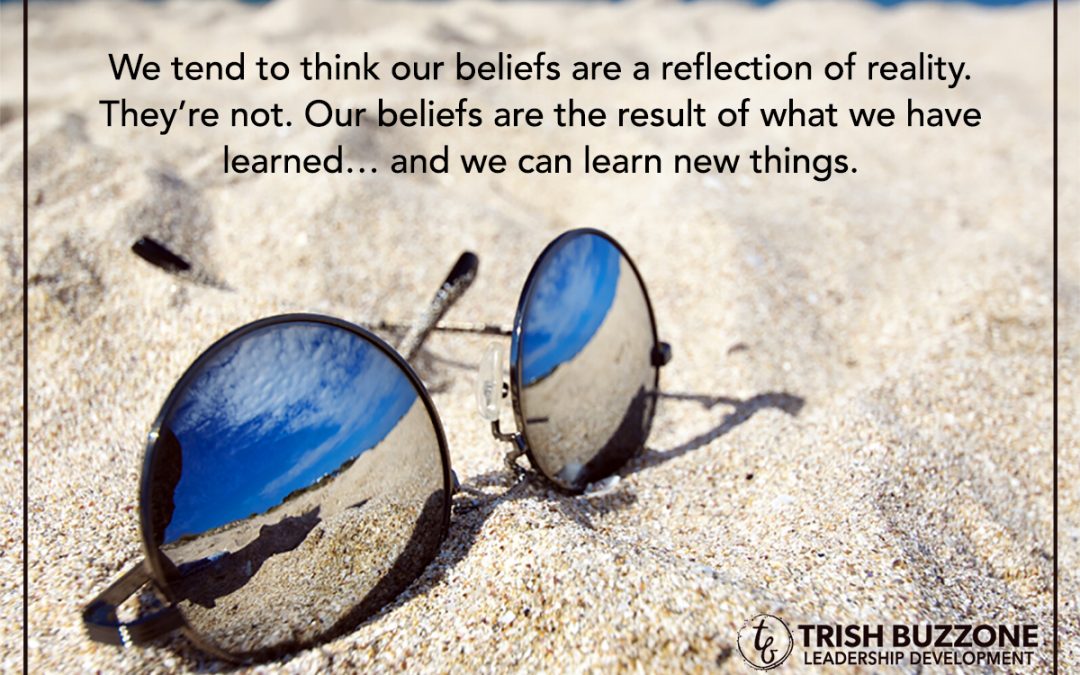Leading Through a Crisis: Chaos, Clear Thinking, and Compassion Fatigue
How to protect our minds when crisis threatens to replace what we know with what we see
Two months ago, none of us knew 2020 would be the year of COVID-19. Yet here we are. Life in the Time of Corona. The silent pandemic, which devastated Wuhan, China, shortly after the world welcomed a new year, then began to spread across the globe, has become the perfect storm, causing fear and confusion to spread even faster than the virus. Businesses are closing, medical providers are stretched thin, doing their best to care for the sick and the dying. People are out of work, out of patience, and out of basic necessities. Leaders at every level of government are struggling with how to deal with the very real human and economic costs.
Many of us have no reference point for how to manage any of this. All of this new stress, fear, and uncertainty is layered on top of the daily challenges we’re already facing, triggering learned subconscious coping responses. With the constant stream of daily crisis, bad news, and incomplete information, it’s easy to feel overwhelmed. Anxiety and uncertainty burrow down deep into our minds. We’re distracted, stuck on questions that have no answers. Many of us latch onto tidbits of hope that get crushed by the next news cycle, and this continues over and over again, stripping away our natural empathy, stretching our compassion to the breaking point.
Doctors, therapists, and other professional caregivers are familiar with this condition. They call it “Compassion Fatigue,” and it’s a common risk for people who have made caring for others their life’s work. Now, as we’ve all been blindsided by this fast-spreading virus, deluged with terrible images, frightening headlines, and conflicting information, all of us, no matter how a crisis may be affecting us personally, are at risk of compassion fatigue, of losing our desire to care about people, and our ability to lead along with it.
Core Values Under Attack
As we are all moving through this crisis together, it’s important to be aware of how each of us is experiencing the pressure in a different way. Most of us fall into one of these groups:
- People who are not yet affected and may not be fully aware.
- People who are currently okay, yet feel surrounded by chaos.
- People who are right in the middle, feeling the full weight of the crisis with no idea when it will be over.
Regardless of which group we find ourselves in, we’re all faced with the same crisis. My friend and mentor, John C. Maxwell, defines crisis as “an intense time of difficulty or danger requiring a decision that will be a turning point.” This definition applies to all of us right now, and those choices are challenging when we’re focused on the stress and questions we do not have answers for. Concern becomes worry, which eventually leads to exhaustion and resignation.
As leaders in a time of crisis, we are ineffective when we allow ourselves to be cynical, apathetic, and resigned to a negative outcome. We need to keep pushing through, to show others what’s possible, and that begins with how we choose to think about this crisis. That’s challenging when our core values and our belief systems are being threatened. It’s so easy to slide into panic mode. To ignore what we know to be true… To make choices that endanger others or offer us a false sense of security.
Thinking Through This Crisis
As leaders, when we choose to reduce the negative noise, live in the truth, and take right actions, we protect our minds and are positioned to offer hope, encouragement, and a way through this time of crisis. When we allow fear, hopelessness, and indecision to drive our thinking, we act based on those negative emotions. Compassion and empathy are starved, leaving us on instinctual autopilot, acting out subconscious fears: apathetic, frustrated, and irritated. This is why, as Max Depree says, “The first responsibility of a leader is to define reality.”
When we shift our focus from our circumstances and choose to intentionally feed our mind with positive affirmations of hope, strength, and vision based on our core values, we become a conduit of clear vision and encouragement despite our circumstances. This begins with an honest accounting of what’s currently driving our thoughts and actions. To be effective leaders, especially in this time of crisis, we need to check-in and be sure our mind, heart, and spirit are healthy, focused, and full.
Start with a Self-Check
Psychotherapist Dennis Portnoy says compassion fatigue is, “a natural consequence of stress resulting from caring for suffering people.” Some might just call it “burnout,” and it may happen to anyone. Early on, we might feel a little too “tight” or “busy,” a bit sluggish or down, and choose to keep plugging ahead without making any shifts in our thinking, because we “just have to” or “someone is depending on us.”
Unchecked and unaddressed, compassion fatigue eventually leads to feeling utterly overwhelmed. This is a result of regularly being emptied out—physically, emotionally, and spiritually—without being filled up again. In times of crisis, this may be the result of continual feelings of confusion and fear without any end in sight. This chronic anxiety and emotional burnout manifests as:
- Fatigue
- Irritability
- Pulling back from things we love
- Ignoring responsibilities
- Canceling plans
- Decreasing ability to function at normal levels
- Boredom or apathy
- Memory issues
- Depression
Patricia Smith, founder of the Compassion Fatigue Awareness Project, says no one is immune. Maintaining this pattern of high-stress, emptying and never refilling, “places any person in harm’s way.”
Pushing Through Compassion Fatigue into Effective Leadership
The move through compassion fatigue, begins with an honest self-evaluation: Am I exhibiting signs of compassion fatigue? How are those signs influencing my choices? When we read through that list and think, “I’m feeling that,” there are a few choices that will help:
Remember our core values and what we know to be true.
Recently, John Maxwell offered this reality check that was very encouraging to me: “Life never stays static. This really is a crisis. And, like all the other crises, and there have been thousands, this too shall pass.”
Ask for help.
Even in quarantine, we are not alone. Connect with other leaders, people you know who are life-givers and encouragers. Share hope, share responsibility. Let go of the need to be perfect or “do it all.”
Schedule time to unplug.
Get away from noise and stress; turn off anything that may cause additional worry. Explore or rediscover something life-giving. Find someplace quiet, get out in nature, listen to music, make some art, hang out with friends on Zoom, Google Hangouts, or Facetime. Tinker, build, experiment… Whatever fills your tank, do that.
Remember, our thoughts become our actions. So, let’s choose to protect our minds, to stay true to our core values, and to be there for and with each other as we walk through this crisis together… We will come out on the other side stronger for it.
To help with that, here’s a free gift of daily affirmations I created with my friend and thinking partner Paul Martinelli. They have been a blessing to me, and I hope they will be a blessing to you as well.
In our next blog, we will follow up on this topic, discussing how awareness and adaptability help us keep our focus on the right things, so we’re in a position to lead effectively through a time of crisis.
Maintaining Momentum After a Big Win
This past week we celebrated with about 100 other leaders at Live2Lead Pasco-Hernando 2018. All of us benefited from dynamic speakers with powerful messages, and we learned specific shifts to help each of us develop and reach our goals as leaders. There...
Winning interview questions for job applicants
In our last blog, we talked with ‘Jimmy,’ who shared an incredible onboarding experience with us. Jimmy had been let go without any warning when his previous employer closed up shop, leaving him desperate for new work and feeling very out of place. He...
The difference on day one
I invest a lot of my time working with leaders to develop teams. I love that aspect of what I do. Working with people, sharing time and having conversations that make us all better is one of the most beautiful and rewarding opportunities I have. I get to...
What transformational leaders say
In our last blog, we talked about how what transformational leaders see gives them a vision that creates real change, in people and in industries. In this article, we’re going to take a deeper look at how those leaders communicate their vision in a way...
What transformational leaders see
When we’re considering a vision or looking ahead at a goal, how can we know if it will be “good,” or it will be “transformational?” What makes the difference? What pushes us over the tipping point from being effective managers to becoming inspiring...
How leading at every level turns customers into fans
Recently, I stopped by a new restaurant in town. It was a fast casual joint, famous for great burgers and delicious shakes, so we decided to give it a try. We arrived anticipating a delicious meal and a tasty treat, however, we did not expect a shining...
How transformational is your vision? Take the quiz!
If we want to accomplish things we have never done, to go from where we are to where we want to be, we must expand our beliefs about our abilities, our focus, and our efforts. We must transform our vision and shift our thinking in a way that makes it all...
Shaun White: a Gold Medal Lesson in What Separates Failure and Success
For this article, I invited my friend and colleague, E. Adam Porter, to share his thoughts on leadership after this week’s remarkable Winter Olympic competition. Even if you knew next to nothing about champion snowboarder, Shaun White, you knew there was...
Building a Leadership Culture
In previous blogs, especially here, here and here, we’ve talked about what a leadership culture looks like on a team. An active leadership culture is not only an environment in which leadership is embraced and trusted, it is an environment in which the...











0 Comments